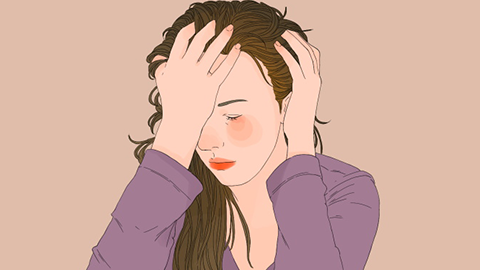What are the characteristics of anxiety-related hypertension?
Anxiety-related hypertension is characterized by blood pressure fluctuations that coincide with emotional changes, frequent physical symptoms of anxiety, insignificant nighttime blood pressure reduction, antihypertensive drug efficacy influenced by emotional state, and a tendency to coexist with autonomic nervous system dysfunction. These features are often triggered or exacerbated by anxiety. If blood pressure fluctuates frequently along with severe anxiety, prompt medical evaluation is recommended.
1. Blood pressure fluctuates in sync with emotions: During anxiety episodes, blood pressure rises rapidly, with systolic pressure potentially increasing abruptly by 20–40 mmHg. As emotions stabilize, blood pressure gradually returns to baseline. These blood pressure changes closely correspond to the onset and relief of anxiety.
2. Commonly accompanied by physical anxiety symptoms: In addition to elevated blood pressure, patients may experience palpitations, chest tightness, dizziness, hand tremors, sweating, and other physical symptoms. These overlap with symptoms of hypertension itself, intensifying the patient's discomfort.

3. Insignificant nighttime blood pressure drop: In healthy individuals, nighttime blood pressure typically decreases by 10%–20% compared to daytime levels. However, patients with anxiety-related hypertension often exhibit reduced nocturnal blood pressure decline due to nighttime anxiety or poor sleep quality, and in some cases, nighttime blood pressure may even exceed daytime levels.
4. Antihypertensive drug efficacy affected by emotional state: When anxiety remains uncontrolled, antihypertensive medications alone often yield suboptimal results, making blood pressure difficult to stabilize. Once anxiety improves, the effectiveness of antihypertensive drugs increases significantly, allowing for better blood pressure control.
5. Prone to coexisting autonomic nervous system dysfunction: Chronic anxiety disrupts autonomic nervous system balance, leading to reduced heart rate variability and increased sympathetic nervous system activity. This exacerbates blood pressure fluctuations, creating a vicious cycle of "anxiety → elevated blood pressure → heightened anxiety."
Daily management should include anxiety-reducing techniques such as deep breathing and meditation, maintaining regular sleep patterns and avoiding late nights, reducing intake of stimulants like coffee and strong tea, and engaging in moderate exercise to relieve stress, all of which help stabilize mood and blood pressure.




